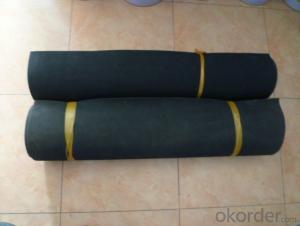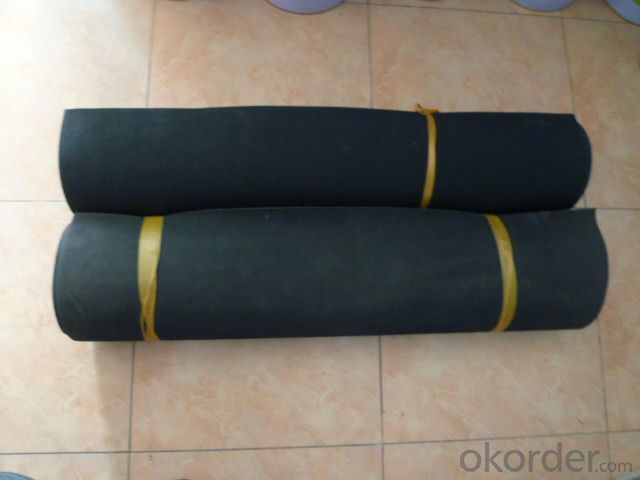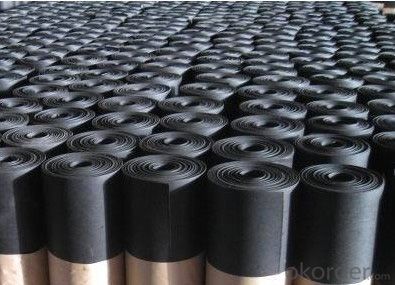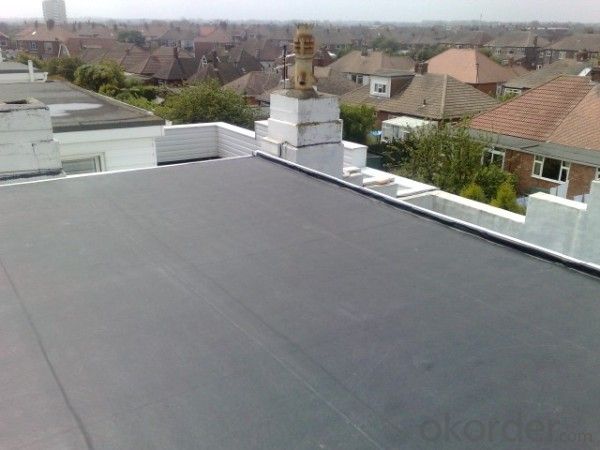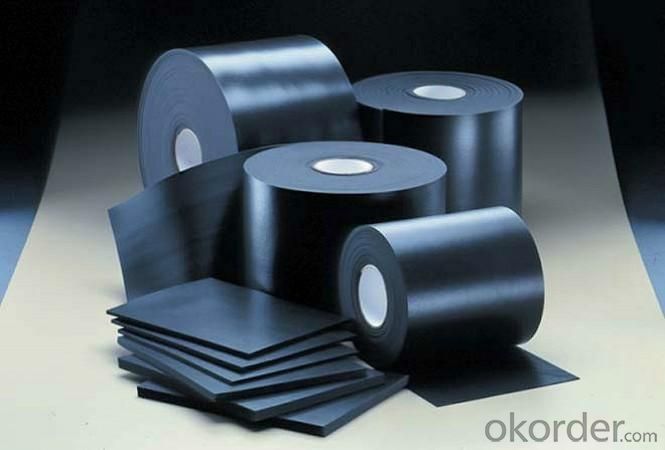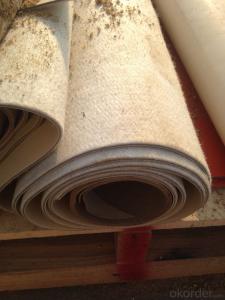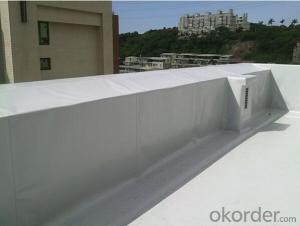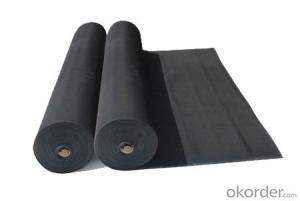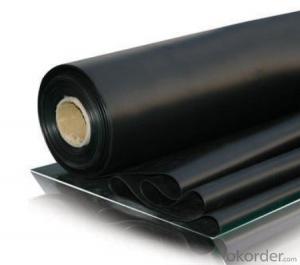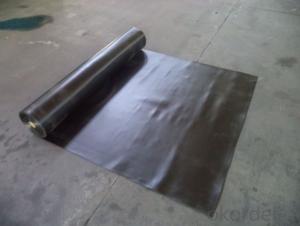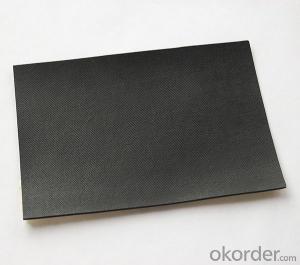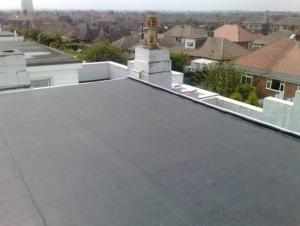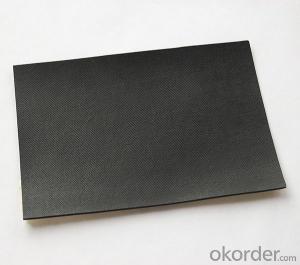EPDM Waterproof Membrane with Weldable for Road
- Loading Port:
- Shanghai
- Payment Terms:
- TT OR LC
- Min Order Qty:
- 50000 m²
- Supply Capability:
- 5000000 m²/month
OKorder Service Pledge
OKorder Financial Service
You Might Also Like
EPDM Waterproof Membrane with Weldable for Road
Description Of EPDM Waterproof Membrane with Weldable for Road:
1. Excellent physical and mechanical performance, high tearing resistance;good deformation adaptability, high puncture resistance;
2. High aging resistance, high UV resistance, anti-acid & alkali;
3. Excellent low & high temperature resistance, innocuous, long life span;
4. Perfect water proof performance, seepage and humidity resistance.
Main Features of EPDM Waterproof Membrane with Weldable for Road:
A.Polyester based SBS Modified Bitumen Waterproofing Membrane
a. Strong impermeability
b. High tensile strength, elongation, ability to adapt the grassroots shrinkage deformation and cracking
c. Puncture-resistant, broken resistant, tear-resistant
d. The corrosion resistance, resistance to mildew, weathering good
e. Construction convenient, hot-melt can be operated Four Seasons Construction, reliable joints
B. Fiberglass based SBS Modified Bitumen Waterproofing Membrane
a. High tensile strength, stability of a good size
b. High Temperature good performance
c. Damage resistance, corrosion resistance, resistance to mildew, weathering good performance
d. Good construction performance, reliable joints.
Specifications of EPDM Waterproof Membrane with Weldable for Road:
| Material | EPDM Rubber |
| Size | 1.2m (width)*20m (length) or customized, weldable type 2.05m or 4m width |
| Thick | 1.2mm, 1.5mm, 2.0mm |
| Type | Vulcanized & Weldable |
| Pattern | Non-reinforced (homogeneous) |
| Certificate | ISO9001/14001 |
Applications of EPDM Waterproof Membrane with Weldable for Road:
geomembrane used in groundsill of road, highway, railway and waterproof layer of swelling clay and wet collapsed loess.Geomembrane can be widely used in areas of garbage burying, waste disposal and underground construction projects.such as below:
- aquaculture ponds
- Ouchi root barrier membrane
- Floating baffles;
- Process wastewater
- Stormwater impoundments;
- Secondary containment;
- Spill containment
- Manure and biogas tanks and covers
- Potable water tanks and covers;
- Sludge Drying beds;
- Bioremediation covers & liners;
- Leachate ponds
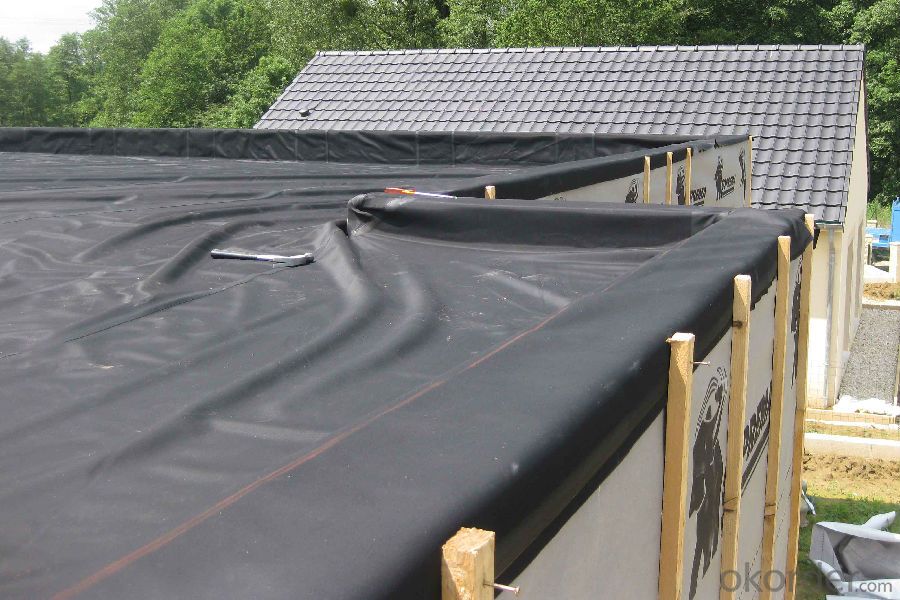
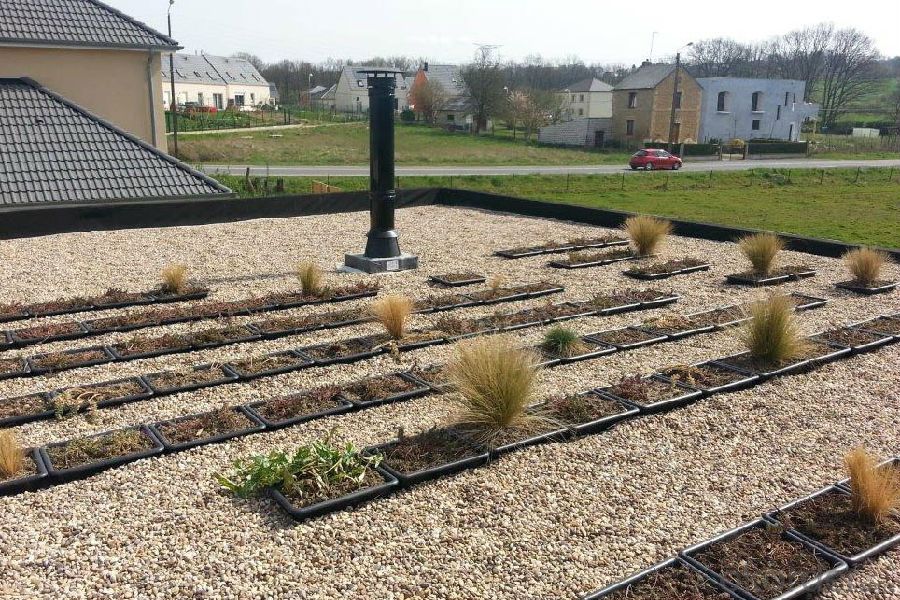
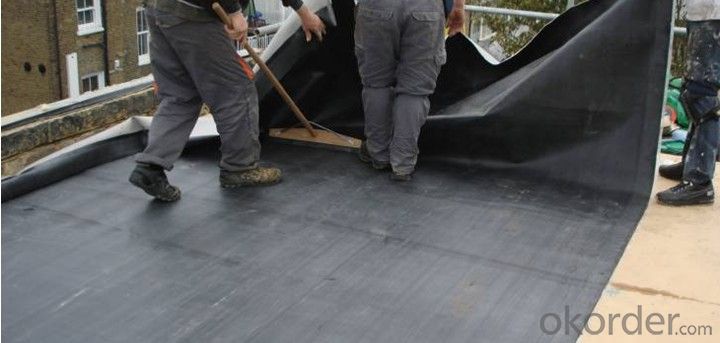
IMages of EPDM Waterproof Membrane with Weldable for Road:
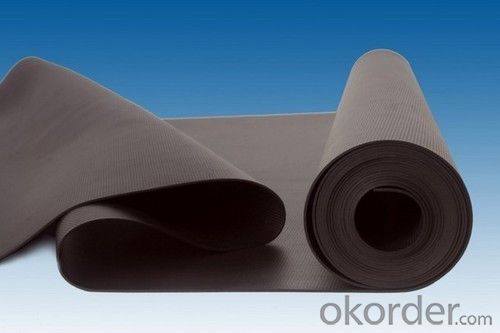
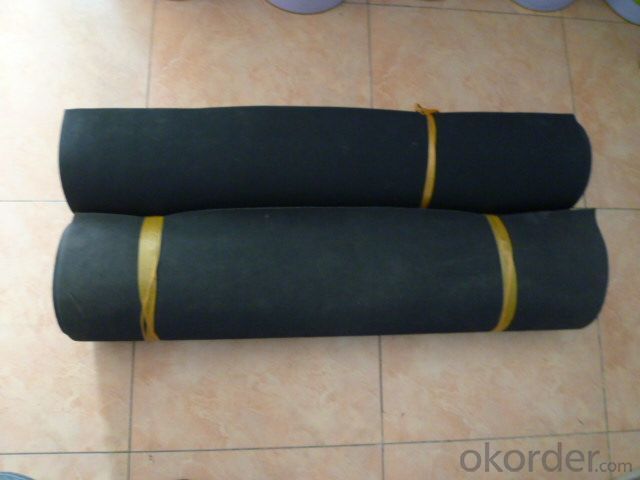
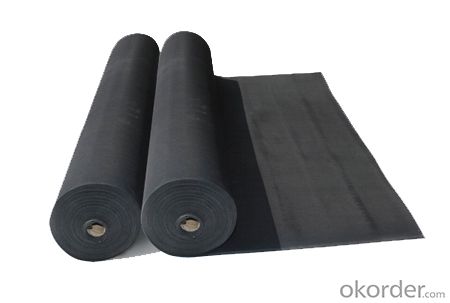
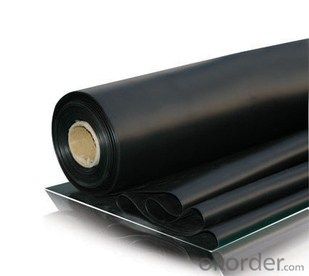
FAQ of EPDM Waterproof Membrane with Weldable for Road:
1. What are we supplying?
We are specialized in producing Colorful Asphalt Roof Shingle, SBS/APP modified bitumen waterproof membrane, Self adhesive bitumen waterproof membrane, PVC waterproofing membrane, EPDM rubber roofing membrane, Single Component Polyurethane Waterproof Coating, and Spray Polyurea Waterproof Coating
.
2. How Many years experience do we have?
We have been exported to more than 20 countries in the past 15 years.
3. How long do we usually reply your request?
We always reply our customer within 24 hours.
- Q: Can waterproofing membranes be used on outdoor fountains?
- Yes, waterproofing membranes can be used on outdoor fountains. Waterproofing membranes are designed to create a barrier that prevents water from penetrating through surfaces, making them ideal for protecting outdoor fountains from water damage. These membranes are typically made of materials such as rubber, PVC, or bitumen, which are highly resistant to water and can effectively seal the fountain's structure. Applying a waterproofing membrane to an outdoor fountain can help prolong its lifespan, prevent leaks, and protect it from the elements.
- Q: Can a waterproofing membrane be used on sloped roofs?
- Yes, a waterproofing membrane can be used on sloped roofs. In fact, it is often recommended to use a waterproofing membrane on sloped roofs to prevent water infiltration and potential leaks. The membrane acts as a barrier, preventing water from seeping into the roof structure and causing damage. Additionally, the membrane can also help to protect the roof from other elements such as UV rays, temperature fluctuations, and mechanical stresses. It is essential to choose a waterproofing membrane that is specifically designed for sloped roofs and is compatible with the roofing material to ensure long-lasting protection.
- Q: Can a waterproofing membrane be used in conjunction with energy-efficient building designs?
- Yes, a waterproofing membrane can be used in conjunction with energy-efficient building designs. In fact, incorporating a waterproofing membrane into the construction of an energy-efficient building can provide several benefits. Firstly, a waterproofing membrane helps to protect the building envelope from water infiltration, which is critical for maintaining the integrity and longevity of the structure. By preventing water damage, the building can avoid costly repairs and potential energy losses caused by moisture intrusion. Additionally, a well-designed waterproofing system can contribute to the energy efficiency of the building by reducing the need for mechanical heating and cooling. By preventing moisture from entering the building envelope, the waterproofing membrane helps to maintain a consistent indoor temperature, reducing the load on HVAC systems and improving energy efficiency. Furthermore, certain types of waterproofing membranes, such as those with reflective or heat-resistant properties, can also contribute to energy savings by reducing heat transfer through the building envelope. These membranes reflect solar radiation, reducing the amount of heat absorbed by the building, and thus decreasing the demand for cooling. Lastly, waterproofing membranes can be integrated with other energy-efficient building components, such as green roofs or rainwater harvesting systems. These systems can help to further reduce energy consumption by providing insulation, reducing stormwater runoff, and promoting sustainable water management practices. Overall, incorporating a waterproofing membrane into an energy-efficient building design can enhance both the durability and energy performance of the structure. It offers protection against water damage, reduces the load on mechanical systems, and can be integrated with other sustainable features, making it a valuable component of energy-efficient building designs.
- Q: Can a waterproofing membrane be used on tunnels with architectural features?
- Yes, a waterproofing membrane can be used on tunnels with architectural features. The membrane can be applied to various surfaces, including those with architectural features, to provide effective waterproofing and prevent water infiltration. This ensures the protection of the tunnel structure and helps maintain its integrity.
- Q: Can a waterproofing membrane be used for fountains or water features?
- Yes, a waterproofing membrane can be used for fountains or water features. These membranes are specifically designed to prevent water from penetrating through surfaces, making them ideal for ensuring the structure is watertight and preventing leaks.
- Q: Can a waterproofing membrane be used on brick walls?
- Brick walls, being porous, can absorb water and moisture, leading to damage and deterioration. To combat this, a waterproofing membrane can be applied. This membrane acts as a barrier, preventing water from entering the bricks while still allowing moisture to evaporate. By keeping the bricks dry, it reduces the risk of issues like efflorescence, mold, and mildew. Additionally, it improves the thermal insulation of the walls, reducing heat loss and enhancing energy efficiency. It is crucial to select a waterproofing membrane specifically made for masonry surfaces to ensure proper adhesion and long-lasting protection.
- Q: Can a waterproofing membrane be applied on top of insulation materials?
- Yes, a waterproofing membrane can be applied on top of insulation materials. However, it is important to ensure that the insulation material is properly installed and does not compromise the effectiveness of the waterproofing system. Additionally, the type of insulation material used should be compatible with the waterproofing membrane to avoid any potential issues or damage.
- Q: How thick should a waterproofing membrane be?
- The thickness of a waterproofing membrane can vary depending on the specific application and the type of membrane used. However, a typical thickness range for most waterproofing membranes is between 1.5mm to 3mm. It is important to consult with a professional or follow the manufacturer's recommendations to determine the appropriate thickness for your specific waterproofing needs.
- Q: Can a waterproofing membrane be used on below-grade walls?
- Yes, a waterproofing membrane can be used on below-grade walls to prevent water infiltration and moisture damage.
- Q: Are there any specific installation techniques for corners and edges when using a waterproofing membrane?
- Yes, when installing a waterproofing membrane on corners and edges, it is important to follow specific techniques. First, ensure that the membrane extends beyond the corner or edge by at least 6 inches to provide adequate coverage. Next, carefully fold and crease the membrane to create a tight seal around the corner or edge. Use a heat gun or adhesive to secure the folded membrane in place. Additionally, apply a layer of sealant or waterproofing tape over the folded membrane to further reinforce the corner or edge. These techniques help prevent water penetration and ensure effective waterproofing in these vulnerable areas.
Send your message to us
EPDM Waterproof Membrane with Weldable for Road
- Loading Port:
- Shanghai
- Payment Terms:
- TT OR LC
- Min Order Qty:
- 50000 m²
- Supply Capability:
- 5000000 m²/month
OKorder Service Pledge
OKorder Financial Service
Similar products
Hot products
Hot Searches
Related keywords
